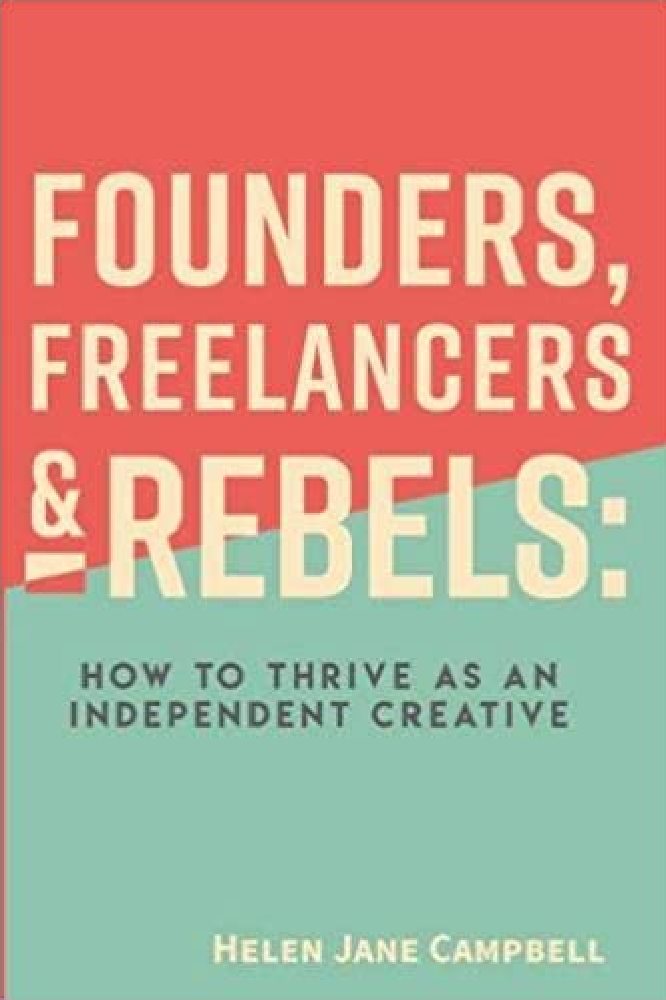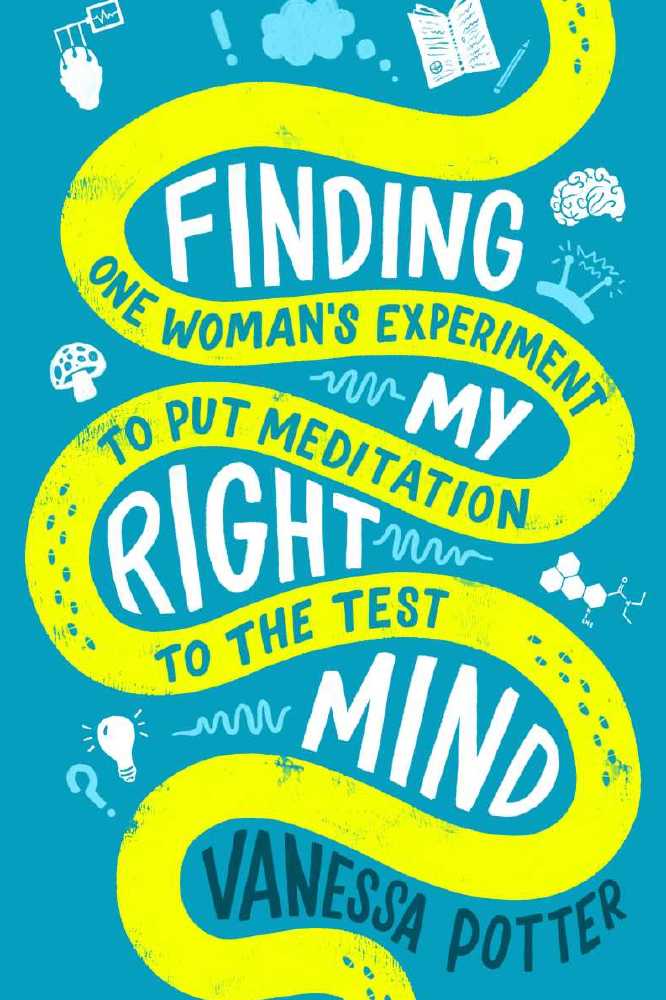2020 saw a record year for new businesses with an estimated 85,000 new companies springing up.

Founders, Freelancers and Rebels
In my book Founders, Freelancers & Rebels: How to Thrive as a Creative Independent, I explore the highs and lows of working for yourself as a creative entrepreneur. Here are a selection of the insights and tips I collected from experts and founders, to inspire and support you on your journey:
1. Learn to have difficult conversations
Being at ease discussing money, deadlines and expectations is a valuable skill.
Cath Brown is a former barrister who now teaches business leaders how to have difficult conversations. She avoids using email for tricky discussions: “The recipient of the email will apply their own interpretation rather than asking for more details or a better understanding as they probably would face-to-face”
Cath explained that email tends to be used as a shield, whereas in person people tend to be less mean or abrupt once that virtual shield is removed.
2. Create a strong brand for yourself
Creating and maintaining a strong brand for your business doesn’t have to cost a lot and can build trust and help you establish yourself from the start.
Zoë Doyle’s a freeelance creative director working with influential household names, such as Estée Lauder and Marks and Spencer. She says:
“A strong brand presence can be achieved very simply but takes thought and planning. The key is to be consistent and considered in your branding so it’s quickly recognisable. Once you have developed your initial branding with, say, logos and a colour palette, stick to and apply this to all that you do.”
3. Do grown-up work experience to understand your clients better
Alex Myers, founder of award-winning PR Agency Manifest, has a brilliant tip for entrepreneurs who want to truly connect with their clients:
“The investment we made in the early days, which now we still do, is work experience with every client: the whole team. So if it’s a retailer then we’re working on the tills. I’ve been on roofs doing roof tiling, I’ve delivered parcels at 5am in the morning, because you need to understand the brand.”
4. Find your squad
Finding like-minded, supportive people is a must if you work for yourself. Joining a co-working space such as Huckletree can help.
Gabriela Hersham, co-founder and CEO of Huckletree explains:
“Huckletree is a lively community of brave entrepreneurs. Our hubs are focused around different sectors — and we run accelerator pro-grammes to ‘super-charge’ entrepreneurs seeking funding. If you’re thinking a co-working space is just a desk space, think again, because yes of course you can rent desks and sign up for mailbox services and so on, but the real benefit comes from the butterfly effect when members start to interact with one another — and we facilitate that and curate our community.”
5. Be curious
Exploring subcultures and different perspectives can be a great way to reset your creativity. I was inspired by journalist, author and podcaster, Lindsay Goldwert, whose personal quest for a more fulfilling career led her to write her book Bow Down, in which she shares lessons from dominatrixes on how to get what you want.
Lindsay’s journey uncovered some invaluable insights and also led her on a journey of self-discovery and reflection. If you feel stuck, finding a new lens to see the world through can be a really great way to refresh your confidence and creativity.
6. Choose your clients thoughtfully
Fiona Chow runs Goadi Consulting Limited in Manchester, UK. One of her top tips — as a single working mum — is to choose clients who share your approach. This can help create harmony and make work enjoyable.
She says:
“The type of clients I work with and choose to cultivate are generally entrepreneurial in mind-set, focused on output rather than admin, straight-talking and fast-acting. They prefer plain speaking, debate rather than dictate and value those with values. This then gives me the freedom to be my best self: nurturer, cheerleader, champion and conscience.”
7. Cultivate a healthy mindset
Dr. Gabija Toleikyte, PhD, has studied the brain extensively and I was excited to speak to her for my book. We talked about the importance of cultivating a healthy mindset, so that we can be objective about who we are and what we need, acknowledging everything is a work in progress. This is a position from which we can learn and grow. Simple steps towards creating and maintaining this mindset might include:
● Breathing exercises
● Healthy eating/sleeping habits
● Walking in nature
● Writing a gratitude list
● Challenging negative thoughts
● Charting your progress
--
About Helen Jane Campbell: Helen Jane Campbell works as a life and business coach for ambitious and creative entrepreneurs. Clients seek her help to bring more joy, energy and abundance into their lives, to create space and reconnect with their self-worth and creative freedom. Prior to becoming a coach, Helen spent two decades of her career in PR and comms strategy, with a focus on building and leading effective teams and working directly with decision-makers and CEOs. She lives in the famous book town of Hay-on-Wye on the Welsh border and enjoys working with artistic clients around the world, bringing her authenticity and energy to all she does. As well as writing and coaching, she also enjoys being in nature, festivals, food, music and art.
Founders, Freelancers & Rebels: How to Thrive as a Creative Independent is available to buy now online and in all good bookshops internationally as a paperback and ebook.
RELATED: How ten days of silence changed my life by Vanessa Potter, author of Finding My Right Mind
“Where’s your coat?” I demanded as my son and I headed to school one morning. When he shrugged I shouted at him. I regretted my outburst as soon as his head dipped and guilt crept over me. Eight year old boys always lose things — why do I get so angry? Anger and frustration always seemed so close to the surface, bubbling away. I wondered if the 10-day silent retreat I’d just booked would help me manage my emotional reactivity better. Meditation is not a panacea, but I was hoping to learn how to see my emotions arrive quicker — so I could decide whether to react to a trigger — or not...


